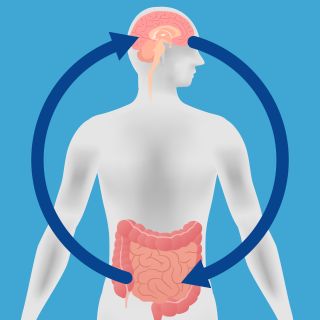Meditation
Newfound Ways Deep Meditation May Improve Gut Health
Buddhists who practice deep meditation religiously have enriched gut microbiota.
Posted January 19, 2023 Reviewed by Michelle Quirk
Key points
- Mindfulness is a user-friendly meditative practice that can be performed anytime, anywhere. Deep meditation is more formal and less flexible.
- On a continuum, mindfulness-based stress reduction and long-term deep meditation practiced by Buddhist monks are on opposite ends.
- Buddhists who practice long-term deep meditation have enriched gut microbiota. Less-extreme meditation could have similar benefits.

Not many of us are in a position to improve our gut health by moving to Tibet and becoming Buddhist monks. Living the monastic life of a Tibetan Buddhist monk is extreme and not an option for most people.
That said, new research on how spending many years practicing deep meditation enriches the gut microbiome gives us fresh insights into specific ways meditative practices may influence the microbiota–gut–brain axis. These findings (Sun et al., 2023) were recently published in the peer-reviewed journal General Psychiatry.
For this microbiota-based study of long-term deep meditation, first author Ying Sun and colleagues from the Shanghai Mental Health Center examined the intestinal flora in fecal samples from 56 Tibetan Buddhist monks using 16S rRNA gene sequencing and compared their gut microbiome structures to those of neighboring residents who didn't meditate. The meditating group (monks) and the nonmeditating group were matched for age, blood pressure, resting heart rate, and diet.
Analysis of fecal samples from the cohort of Tibetan monks who'd been religiously practicing deep meditation for many years showed that the composition of their gut microbes differed from nonmeditating control subjects' gut bacteria. "We confirmed that the gut microbiota composition differed between the monks and control subjects," the authors explain.
Everyday Mindfulness and Buddhist Monks' Deep Meditation Are on a Continuum
Some people consider everyday mindfulness practices a watered-down version of traditional "hardcore" Buddhist meditation. If mindfulness-based stress reduction (MBSR) and the long-term deep meditation practiced by Tibetan Buddhist monks were on a continuum, they'd be on opposite ends.
MBSR is something people living in the "real world" can practice just about anytime and anywhere. On the flip side, practicing long-term deep meditation like a Buddhist monk would technically require living in a monastery and dedicating years of your life to meditating religiously.

Nonetheless, there's value in understanding how Buddhist monks' meditative practice affects the gut–brain axis. Hypothetically, lower "doses" of meditation or moderate amounts of mindfulness may also enrich gut microbiota in similar ways experienced by Tibetan Buddhist monks, but to a lesser degree.
Deep Meditation May Improve Overall Well-Being by Enriching Gut Microbiota
At the genus level, Sun et al. found that certain gut microbiome species were significantly enriched in the meditation group. "Bacteroidetes were significantly enriched in the monks' stool samples (29% vs. 4%), which also contained abundant Prevotella (42% vs. 6%) and a high volume of Megamonas and Faecalibacterium," the authors explain in a January 2023 news release.
"Long-term traditional Tibetan Buddhist meditation may positively impact physical and mental health. [...] The microbiota enriched in monks was associated with a reduced risk of anxiety, depression, and cardiovascular disease and could enhance immune function," the authors sum up in their paper's conclusion.
On the basis of these findings, the researchers speculate that deep meditation's ability to enrich gut microbiota and improve psychological well-being could also benefit people who meditate regularly but aren't necessarily Buddhist monks. More research is needed to see how these findings translate to other populations living in the general population.
References
Ying Sun, Peijun Ju, Ting Xue, Usman Ali, Donghong Cui, Jinghong Chen. "Alteration of Faecal Microbiota Balance Related to Long-Term Deep Meditation." General Psychiatry (First published: January 16, 2023) DOI: 10.1136/gpsych-2022-100893


